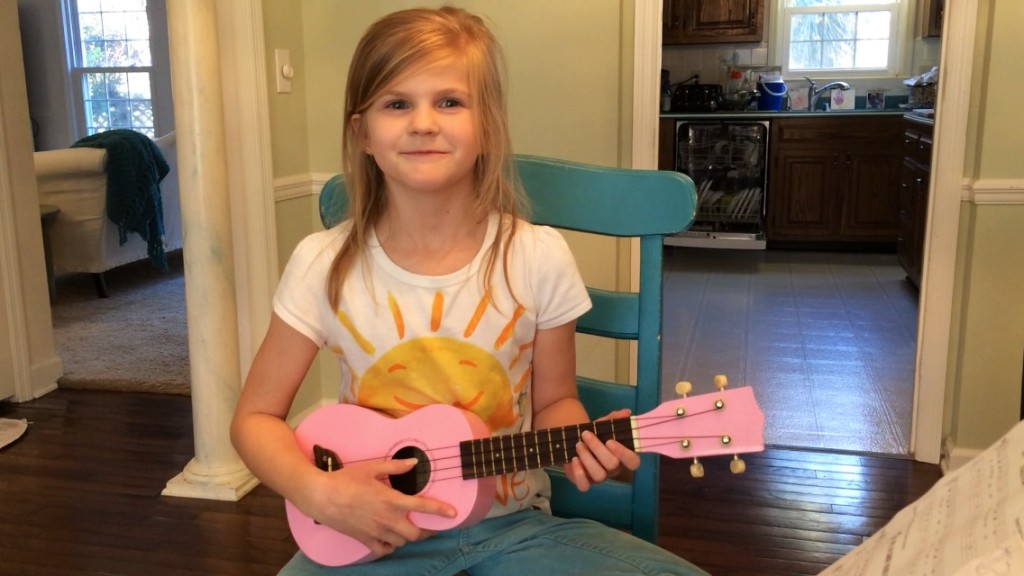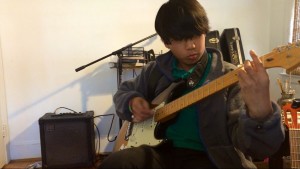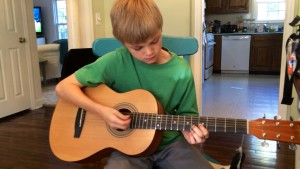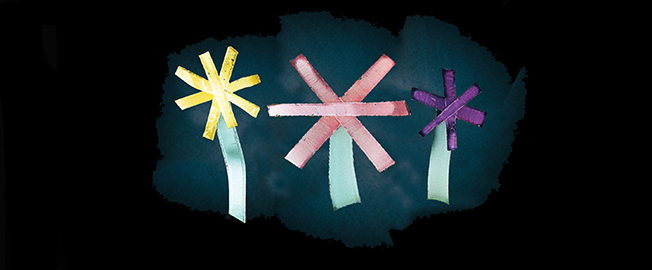Virtual Recital No. 1: ‘Ob La Di, Ob La Da’

I remember going over to a friend’s house in high school to check out some of the homemade hip-hop he was creating on his desktop PC, layering beats, samples, vocals, and instruments across multiple tracks in a program called Mixcraft to create the illusion of an entire ensemble playing together.
 It was my first encounter with “multi-track recording,” a concept pioneered by Les Paul, Mary Ford and Patti Page in the 1950s when they began enhancing their session recordings by overdubbing vocals and instruments. For them, and subsequently, the entire recording industry, it was a chance to achieve higher fidelity by recording each instrument individually. For me, it was a chance to make the music I wanted to make on my own. I went home, downloaded Mixcraft, borrowed my mom’s headset microphone, and began experimenting, writing and recording sloppy, but original songs by tracking electric guitars, acoustic guitars, percussion, baselines and vocals.
It was my first encounter with “multi-track recording,” a concept pioneered by Les Paul, Mary Ford and Patti Page in the 1950s when they began enhancing their session recordings by overdubbing vocals and instruments. For them, and subsequently, the entire recording industry, it was a chance to achieve higher fidelity by recording each instrument individually. For me, it was a chance to make the music I wanted to make on my own. I went home, downloaded Mixcraft, borrowed my mom’s headset microphone, and began experimenting, writing and recording sloppy, but original songs by tracking electric guitars, acoustic guitars, percussion, baselines and vocals.
Last October, I introduced six of my younger students to the process of multi-track recording when I arranged the Beatles’ “Ob La Di, Ob La Da” into multiple parts. They each practiced their part with the  dreaded metronome – a necessary evil in the process of multi-track recording, as the metronome, or “click track,” glues everything together to create the illusion of multiple performers playing in one room.
dreaded metronome – a necessary evil in the process of multi-track recording, as the metronome, or “click track,” glues everything together to create the illusion of multiple performers playing in one room.
For all I know, Millie Bennett (age 8 at the time, pictured above) and Ethan Sikka (age 11, pictured above right) have never been in the same room together. Our arrangement of “Ob La Di, Ob La Da” begins with Ethan on fingerstyle classical guitar accompanying Millie’s syncopated ukulele melody. Millie passes the melody off to her brother, Charlie (age 10, pictured right) and Chase Bonhotel (age 12). Matthew Messenger (age 14) provides a lower harmony of the melody, while Will Brite (age 12) strums along on acoustic rhythm guitar.
After some digital touch ups in Logic Pro, I added MIDI bass and drums, and voila: “Ob La Di, Ob La Da,” performed by a virtual band that never even rehearsed in the same room together. Check it out:

